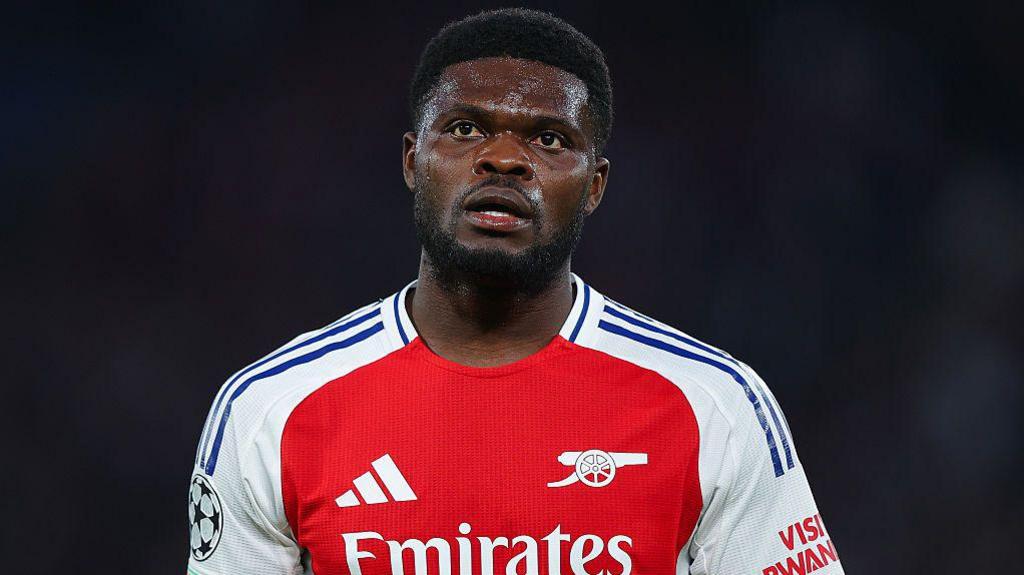Arteta Stands Firm: Arsenal’s Defense of Their Partey Process Amid Serious Charges
Introduction
The football world was stunned when Thomas Partey, Arsenal’s former midfielder, faced serious criminal charges just days after his contract expired. Accused of multiple offenses, including rape and sexual assault, the case has cast a shadow over his tenure at the club. Amid the controversy, Mikel Arteta has vehemently defended Arsenal’s handling of the situation, insisting the club followed all protocols meticulously. The Partey case now raises critical questions about accountability, due process, and how top-tier clubs navigate off-field crises.
Arteta’s Unwavering Confidence in Arsenal’s Protocols
Facing reporters during Arsenal’s pre-season tour in Singapore, Arteta left no room for ambiguity. When questioned about whether the club adhered to proper procedures during Partey’s time at Arsenal, his response was emphatic: “100%, yes.” This unwavering confidence suggests the club is certain it acted within legal and ethical boundaries, even as the details of the case remain under judicial scrutiny.
Arteta acknowledged the legal complexities surrounding the allegations, stating, “There are a lot of legal matters that are very complicated, so I cannot comment on any of that.” His restraint underscores the delicate balance clubs must strike between transparency and legal constraints when serious allegations surface.
The Partey Case: Timeline and Legal Complexities
The charges against Partey stem from allegations made by three women, with incidents reportedly occurring between 2021 and 2022. The Metropolitan Police initially opened an investigation in February 2022 after receiving a report of rape. For over a year, the case unfolded behind closed doors, leaving Arsenal to manage the situation discreetly while Partey remained a key player on the pitch.
Partey, who joined Arsenal in a high-profile £45 million transfer from Atletico Madrid in 2020, played a pivotal role in the squad. Last season, he made 35 Premier League appearances, helping the team secure a second-place finish. His performances in the Champions League further highlighted his value, though the campaign ended in heartbreak with a semi-final defeat to Paris St-Germain.
His departure on June 30, coinciding with his contract’s expiration, seemed like a natural conclusion—until the charges were announced on July 4. Partey has denied all allegations, with his legal team emphasizing his eagerness to clear his name. His first court appearance is scheduled for August 5 at Westminster Magistrates’ Court.
Fan Reactions and Ethical Dilemmas
The charges have sparked intense debate among Arsenal supporters and football analysts. Many fans question whether the club should have taken more decisive action while Partey was under investigation. However, legal frameworks often restrict clubs from acting prematurely, especially before formal charges are filed.
This case is not isolated. The Premier League has grappled with similar controversies in recent years, with clubs facing scrutiny over how they handle player misconduct allegations. Arsenal’s approach to the Partey situation may set a precedent for how teams balance legal obligations, player welfare, and public expectations moving forward.
The Broader Implications for Football Governance
Beyond the immediate legal proceedings, the Partey case highlights the challenges clubs face in managing high-profile allegations. Football’s governing bodies are under increasing pressure to enforce stricter regulations regarding player conduct, ensuring clubs prioritize accountability alongside competitiveness.
Arteta’s steadfast defense of Arsenal’s protocols suggests the club is confident in its internal processes. Yet, as the case progresses, new information could either validate or challenge that stance. For now, the focus remains on the judicial system—and whether Partey can, as he insists, prove his innocence.
Conclusion: Navigating Accountability in Modern Football
Mikel Arteta’s resolute stance reflects Arsenal’s belief in their due diligence during Partey’s time at the club. However, the broader conversation extends beyond this single case, touching on issues of transparency, ethical governance, and the responsibilities of football institutions.
The Partey process serves as a stark reminder of the intricate challenges clubs encounter when allegations arise. Balancing legal constraints, public perception, and moral accountability is no simple task. As the football world watches the case unfold, one thing remains clear: the need for clear, consistent protocols has never been greater.
Related Topics:
– Premier League Regulations on Player Conduct
– The Role of Clubs in Managing Off-Field Allegations
– Legal and Ethical Challenges in Professional Sports
